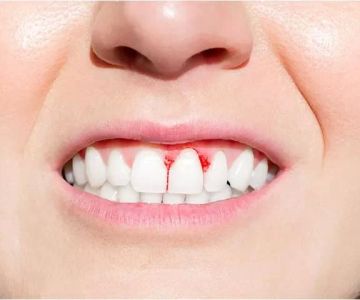
The Impact of Pregnancy on Your Dental Health
Pregnancy is an exciting and transformative time in a woman's life, but it also comes with a variety of changes to the body, including the mouth and teeth. Many women may not realize that pregnancy can have a profound impact on their oral health. From hormonal shifts to changes in dietary habits, pregnancy can introduce new dental challenges. In this article, we will explore the most common effects of pregnancy on dental health and provide tips on how to keep your smile healthy throughout this important time.
Hormonal Changes and Their Effect on Oral Health
One of the most significant contributors to dental issues during pregnancy is hormonal changes. These fluctuations in hormones, particularly estrogen and progesterone, can have various effects on the gums and teeth. For instance, increased levels of progesterone can make the gums more sensitive and prone to inflammation. This condition, known as pregnancy gingivitis, can cause redness, swelling, and bleeding of the gums, especially when brushing or flossing.
It's important to note that pregnancy gingivitis usually occurs in the second and third trimesters, when hormone levels are at their peak. If left untreated, this condition can lead to more severe gum disease, which may increase the risk of premature birth or low birth weight. Regular dental check-ups and good oral hygiene practices are crucial in preventing these issues.
Increased Risk of Cavities and Tooth Decay
Pregnancy can also affect your susceptibility to cavities and tooth decay. One reason for this is the increase in cravings for sugary and acidic foods during pregnancy. Frequent snacking on sugary foods or drinks, combined with changes in oral bacteria, can increase the risk of cavities. Additionally, some pregnant women experience nausea and vomiting, particularly during the first trimester, which can expose the teeth to stomach acids and contribute to enamel erosion.
To minimize the risk of cavities, it’s essential to brush your teeth regularly with fluoride toothpaste, floss daily, and visit your dentist for routine check-ups. If you experience nausea or vomiting, rinse your mouth with water or a fluoride mouthwash to neutralize stomach acids before brushing your teeth. It's important to wait at least 30 minutes after vomiting before brushing your teeth to prevent damaging the enamel.
Pregnancy and Gum Disease
Gum disease, or periodontal disease, is another concern for pregnant women. If pregnancy gingivitis is left untreated, it can develop into a more serious form of gum disease called periodontitis. This condition can lead to severe gum inflammation, infection, and tooth loss if not managed properly. The hormonal changes during pregnancy can exacerbate gum disease, making it more difficult to control plaque buildup and bacterial growth.
To protect your gums during pregnancy, it's essential to maintain good oral hygiene and schedule regular dental visits. Professional cleanings can remove plaque and tartar that you may have missed during daily brushing. Additionally, your dentist may recommend a deep cleaning or scaling procedure if you have signs of advanced gum disease.
How Pregnancy Affects Your Smile
Aside from gingivitis and gum disease, pregnancy can also lead to other dental issues such as dry mouth, tooth sensitivity, and changes in the appearance of your teeth. Dry mouth, or xerostomia, is a common problem during pregnancy, especially due to hormonal changes. This condition occurs when there is a reduction in saliva production, which can lead to discomfort and an increased risk of tooth decay and gum disease. To manage dry mouth, drink plenty of water, use a saliva substitute, and chew sugar-free gum to stimulate saliva production.
Another issue that many pregnant women experience is increased tooth sensitivity. This is often caused by the hormonal changes that affect the gums and the enamel on the teeth. If you notice increased sensitivity to hot or cold foods, consider using toothpaste designed for sensitive teeth and avoid extreme temperatures in food and drinks.
Maintaining Oral Health During Pregnancy
Maintaining good oral health during pregnancy is essential for both your well-being and the health of your baby. Here are a few tips to help you care for your teeth and gums:
- Brush and floss regularly: Brush your teeth at least twice a day with fluoride toothpaste and floss daily to remove plaque and food particles from between your teeth.
- Visit your dentist: Schedule regular dental check-ups and cleanings to ensure that your teeth and gums are healthy. Let your dentist know if you are pregnant so they can adjust their treatments accordingly.
- Watch your diet: Avoid sugary snacks and drinks that can increase your risk of cavities. Instead, focus on a balanced diet rich in calcium, vitamin D, and other nutrients that support both your oral health and the health of your baby.
- Stay hydrated: Drink plenty of water throughout the day to help prevent dry mouth and maintain proper hydration for your overall health.
- Use mouthwash: Consider using a fluoride mouthwash to help strengthen your enamel and prevent tooth decay.
Dealing with Pregnancy-Related Dental Problems
If you experience any dental problems during pregnancy, such as swollen gums, tooth pain, or persistent bad breath, it’s essential to consult your dentist. Delaying treatment can worsen the problem and may affect both your health and your baby's well-being. In most cases, dental procedures, such as cleanings, fillings, and even certain types of x-rays, can be safely performed during pregnancy. However, always discuss any concerns with your dentist before undergoing any treatment.
Real-Life Stories: How Pregnancy Affects Dental Health
Many women have shared their experiences of how pregnancy has affected their dental health. One mother, Sarah, found that during her pregnancy, she experienced severe gum bleeding, which worried her. After visiting her dentist, she learned that pregnancy gingivitis was the cause and was given advice on improving her brushing technique and using a special mouth rinse to ease the symptoms. With proper care, Sarah was able to manage her gum health and enjoy her pregnancy without complications.
Another woman, Lisa, struggled with tooth sensitivity during her second trimester. After talking to her dentist, she switched to a toothpaste for sensitive teeth and found relief. She was also advised to avoid acidic foods and drinks, which helped prevent further irritation.
Conclusion: Protecting Your Dental Health During Pregnancy
Pregnancy brings with it a host of changes, some of which can impact your dental health. However, with the right care, you can manage these changes and maintain a healthy mouth throughout your pregnancy. By practicing good oral hygiene, maintaining a balanced diet, and visiting your dentist regularly, you can protect your smile and ensure that your pregnancy goes as smoothly as possible.







 Westgate Dental Arts
Westgate Dental Arts Coventry Family Dental
Coventry Family Dental Familia Dental
Familia Dental Dr. Daniel S. Fife, DDS
Dr. Daniel S. Fife, DDS Dentistry At Suburban Square: Michael I. Wollock, DMD
Dentistry At Suburban Square: Michael I. Wollock, DMD Comfort Care Dental
Comfort Care Dental The Importance of Oral Health Education During Pregnancy for a Healthy Pregnancy
The Importance of Oral Health Education During Pregnancy for a Healthy Pregnancy Why Skipping Dental Checkups Can Lead to Bigger Oral Health Problems
Why Skipping Dental Checkups Can Lead to Bigger Oral Health Problems Advantages of Porcelain Dental Restorations
Advantages of Porcelain Dental Restorations Best Tips for Brushing Your Teeth Properly for Healthy Gums: Essential Techniques for Oral Health
Best Tips for Brushing Your Teeth Properly for Healthy Gums: Essential Techniques for Oral Health How Can Diabetes Cause Tooth and Gum Problems? Preventing and Managing Oral Health Issues
How Can Diabetes Cause Tooth and Gum Problems? Preventing and Managing Oral Health Issues Healthy Habits for Promoting Good Oral Health and Hygiene: Tips for a Healthy Smile
Healthy Habits for Promoting Good Oral Health and Hygiene: Tips for a Healthy Smile